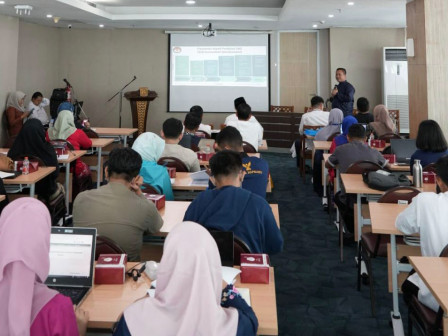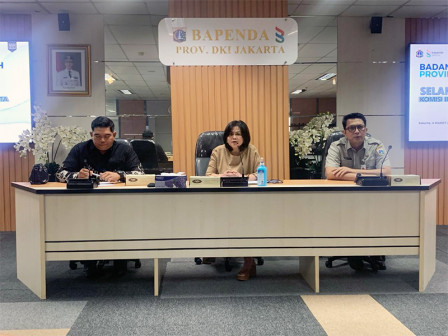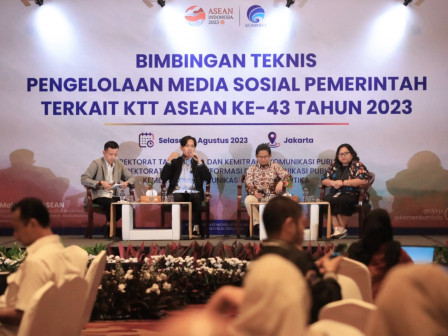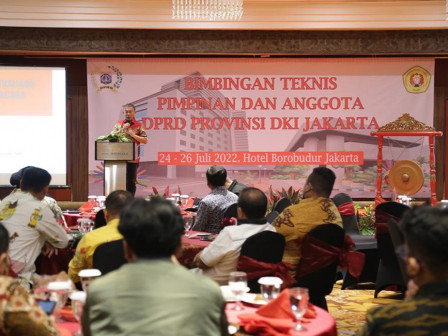Secretariat General Bureau-Information Commission Holds E-Monev Bimtek 2024
Reported by Anita Karyati | Translated by Nugroho Adibrata
The City Secretariat's General and Administrative Bureau and the Jakarta Information Commission held Technical Guidance (Bimtek) on E-Monitoring and Evaluation (E-Monev) for public agencies in the Bureau category at Block G Building, City Hall, Central Jakarta.
Hopefully, they can understand various things
Jakarta General Bureau and Regional Secretariat Head, Sugih Iman said it is a good form of synergy to oversee the implementation of public information openness in Jakarta.
He stated public information disclosure is something that all public bodies in Jakarta must implement following the mandate of Law Number 14/2008.
Information Commission Holds Monitoring and Evaluation Visit to PPAPP Agency"We welcome it, especially regarding the preparation of public agencies in the Bureau category to participate in the implementation of E-Monev 2024," he expressed, Sunday (4/28).
He explained that this step provided clear, complete, and transparent information to the public. The E-Monev held by the Information Commission every year requires every public body to improve the governance of public information services.
He asserted today's E-Monev technical guidance is a commitment from the Jakarta General Bureau and ASD to jointly oversee the implementation of public information disclosure and encourage public bodies in Jakarta to achieve the Informative title.
"We will get practical guidance regarding E-Monev as a constitutional mandate and is hoped that public bodies in Jakarta can achieve the Informative title," he added.
Jakarta Information Commission Commissioner for Education, Socialization, and Advocacy (ESA), Aang Muhdi Gozali explained the Bimtek was carried out to provide direct supervision and assistance to public bodies.
He hoped that the participants from Information and Documentation Management Officers (PPID) would receive an understanding of the stages and mechanisms for implementing the E-Monev.
"Hopefully, they can understand various things about the implementation of E-Monev, starting from assessment indicators to the technicalities of filling out the Self Assessment Questionnaire (SAQ)," he hoped.
He mentioned that public information is divided into two categories, such as open information and excluded information. Open information included three classifications, starting from information that must be provided periodically, information that must be provided immediately, and information that must be provided at any time.
"By understanding the types and classifications of public information, it will be easier for us to manage it," he explained.
Further, he encouraged public bodies in the Bureau category to keep improving the governance of public information services in order to achieve the Informative title in the next implementation of E-Monev.
"This E-Monev Bimtek was continued with a simulation of filling out the SAQ and sharing about the problems faced by public bodies in managing their public information," he concluded.




